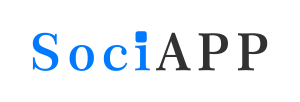Iot hub, Iot platform — An iot platform is the software or hardware that allows users to connect their devices to the internet. Basic expectations include security, data management, and device management. What should an IoT platform provide? What capabilities must it offer? An IoT platform consists of a set of hardware and software systems for managing, organizing, and interpreting the massive amount of data created by connected devices. Connecting devices, gateway, and devices to all the applications are fairly simple. The iot hub can be configured, based on the protocol and also portability from another platform or carrier.
An IoT platform is a software solution that enables you to establish, manage and integrate IoT apps and services. IoT platform is a comprehensive utility that combines all the necessary facilities for the development, deployment, and management of strategic cloud-based IoT applications. An ideal platform allows users to easily manage devices, connect to apps and data sources, generate reports, and develop new or extend existing functionalities through APIs. An IoT platform is a technology that enables connectivity and integration of various IoT components.
An IoT platform’s primary task is to provide a set of APIs, services, and tools that enable users to create, deploy and manage IoT solutions. In addition to being able to collect, analyze, store and act on sensor data, such platforms can also help control cost and risk by providing monitoring, diagnostics, security (encryption), and scalability. Seamless, flexible, and scalable delivery of IoT solutions that are future-ready and easy to adapt as your needs evolve -overview of your company mission and vision, how you plan to achieve it, your products, services, and differentiation, your potential customers and revenue streams, your team structure and roles.
What are the basic expectations from an IoT platform? A device manufacturer focused on IoT use cases will have the following questions in mind. The iot platform should do all the heavy lifting in terms of using big data, ensuring that you’re tracking the right metrics, staying up to date with device updates, managing user roles, collecting data into the right data lakes and warehouses, and then enabling you (and your customers) to leverage that valuable data. IoT Platform is cloud platform services that allow developers to build, test and manage their IoT applications in an insecure manner.
referring to business solutions: AWS IoT monitoring and management platform helps the user monitor various devices connected to the IOT hub through MQTT or HTTP.user can visualize data on cloud watch, DynamoDB, kinesis. If a device is not working properly(or disconnected) an alarm is triggered by setting cloud watch alarms. In IoT projects, different system components need to communicate with each other. For example, the device needs to communicate with the cloud platform and send data. Maybe another application also needs to access data from the cloud (and maybe also interact with a device).
Secure device authentication, Monitoring, and analytics, The ability to send secure data everywhere. For example, Azure IoT Hub allows for secure two-way communication so you can easily send and receive data from your devices. This means that you can receive diagnostics from many sources and monitor rules and more. In addition, programmatic rules allow for automating the scaling of devices and bi-directional communications to highly secure devices, such as those running in a certified environment. To expect a platform to be open source. Its design should follow an opinionated approach. Open Source provided the flexibility of continuous integration and continuous deployment. Following an opinionated approach reduces configuration costs and reduces the number of opening issues due to configuration issues.


